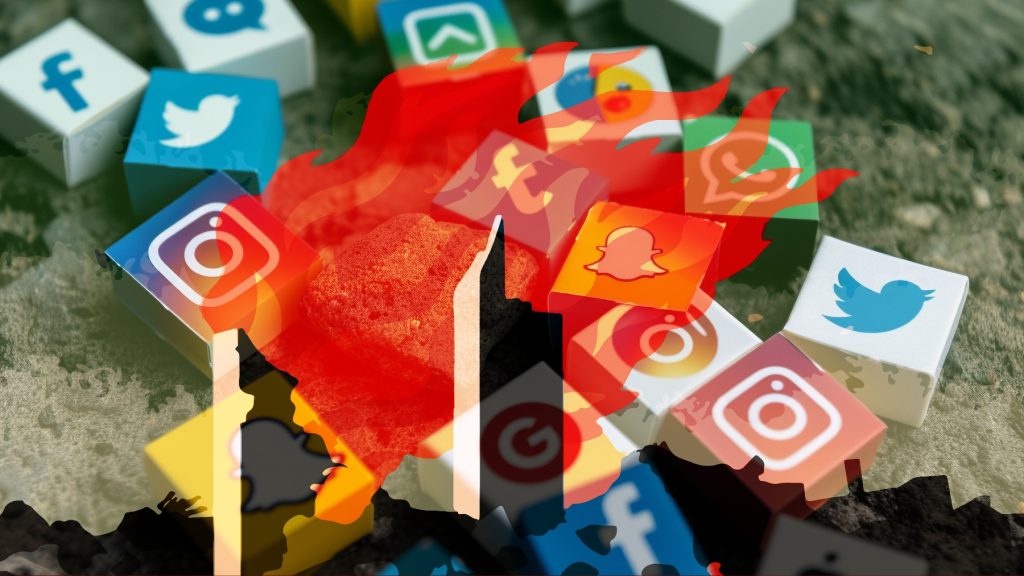
From the beginning of October 7 of last year, Palestinians documented the devastation in Gaza which turned out as social media war coverage as they began to face shadow bans and account suspensions.
A full year has passed and the Israeli violence on Palestinians in Gaza and the West Bank has done nothing but intensify. The Israeli war on Palestinians became a portrait of sorrow, devastation, and the cruelty of war, drawn by how Palestinians took their cameras to reveal to us a new form of war on social media, documenting the utter destruction and mass losses of human life on the spot.
Many were censored, few were shared, many were removed, mostly on Instagram as Meta imposed a sever shadow ban or suspension of Palestinians and non-Palestinian accounts.
A part of that was driven by the European Union’s Digital Services Act (DSA) demanding that social platforms, such as Instagram, Facebook, TikTok, and X (FKA Twitter) remove harmful content or disinformation – content deemed harmful based on the EU’s guidelines.
Critics said pro-Palestinian content was being silenced at an alarming rate while other perspectives continued unabated.
Social Media and War
From the beginning of the social media and Gaza war, platforms became an essential extension to how they share the suffering imposed by Israel on them, making these channels an interactive window between them and the outside world, outside the Israeli-imposed confined walls surrounding the city.
When it came to Palestinians social media war coverage, users often reported being shadow banned or having their accounts suspended upon posting about Gaza on Instagram. This was due to EU policies like the DSA, which pressured social media during the war to remove “misinformation” and harmful content, this censorship hit pro-Palestinian voices only.
Meta came under criticism for silencing on Instagram content that shared the suffering reality of Gaza while enforcing its anti anti-Zionist policy that allowed removing posts critical of Zionists but not those against Palestinians. For prominent Palestinian influencers to document and share the unimaginable level of damage unfolding in Gaza, some, like Motaz Azaiza and Plestia, had their accounts suspended multiple times.
Yet, once the news got out on social media in war that Elon Musk was going to donate Starlink services to Gaza as a means to try to restore internet access amidst the terror that was happening, his plans “suddenly” changed. After conversations on social media and increasing pressure began, and let’s not forget that golden invitation from Israel, Starlink would not be an option for the Palestinian territories, but rather a distant hopeful dreams, a testament how this war shows just how broken social media has been.
The Turnabouts Social Media and War Took
The social media war coverage was never as easy as it sounds with Palestinians and people supporting the cause feeling forced by turnabouts to be able to spread awareness and inform people about what is happening.
The social media and Israel Hamas war coverage was not given justice, heavily criticized for presenting a one-sided narrative, with observers vocalizing their perspectives from Palestine and the bloody war are often overshadowed.
A clear imbalance in power between both sides, where the Israeli social media war clearly holding more control over global media and American social companies, allowing them to control the narrative, and by default, shaping the public’s opinion on what’s happening. While Israel did fail to reconstruct the public’s opinion on what’s happening, what’s evident thought is that the weaponization of social media to shape the public’s discourse is yet another clear ethical violation of people’s freedom of speech and ability to determine their own conclusions on the events unfolding in the Middle East.
The same series of events are taking place as Israel keeps bombing Lebanon in the most terroristic manner possible. Yet, the social media war coverage only shows what it wants the world to see and turns a blind eye to what the world should actually see.
Inside Telecom provides you with an extensive list of content covering all aspects of the tech industry. Keep an eye on our Tech sections to stay informed and up-to-date with our daily articles.